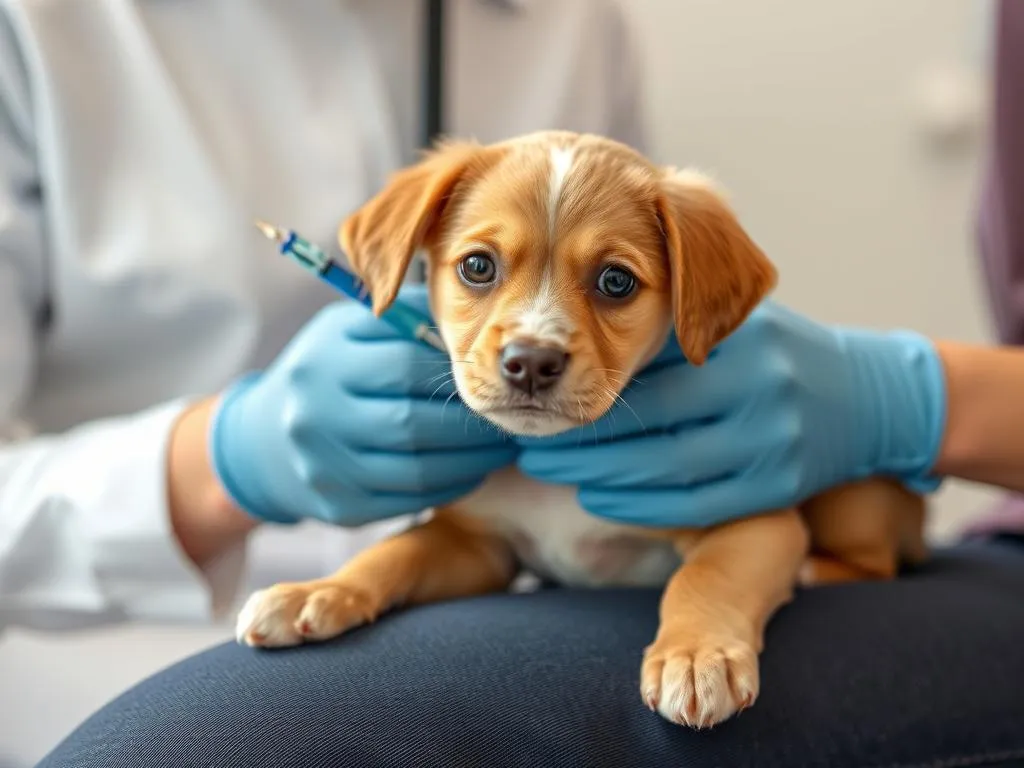
Vaccinations are a cornerstone of responsible dog ownership, particularly during a puppy’s critical early development phase. Ensuring your puppy receives the necessary vaccinations not only supports their individual health but also contributes to the broader community’s health through herd immunity. In Canada, potential dog owners often wonder, how much do dog puppy vaccinations cost in Canada? Understanding the costs associated with these essential health measures can help you plan for your puppy’s veterinary care effectively.
Understanding Puppy Vaccinations
What Are Puppy Vaccinations?
Vaccinations are medical interventions designed to stimulate the immune system and help protect against specific diseases. For puppies, a series of vaccinations is essential to prevent a range of potentially fatal illnesses. Common puppy vaccinations include:
- DAPP (Distemper, Adenovirus, Parvovirus, Parainfluenza): A combination vaccine that protects against several serious diseases.
- Rabies: A crucial vaccine mandated by law in many regions, protecting against this fatal viral disease.
- Bordetella: Often required for dogs that will be in close contact with other dogs, such as at kennels or daycare facilities.
Why Are Vaccinations Important?
Vaccinations play a fundamental role in maintaining not just the individual health of your puppy but also the health of the wider dog population. Herd immunity occurs when a significant portion of a population becomes immune to a disease, making its spread unlikely. This is especially important for those puppies who cannot be vaccinated due to medical reasons or are too young to receive vaccines.
Preventing diseases through vaccination not only saves lives but also reduces the potential for costly veterinary treatments and the emotional toll of caring for a sick pet. Additionally, vaccinations are often required for travel and stays in boarding facilities, making them essential for any dog owner planning to be on the move.
Vaccination Schedule for Puppies
Recommended Vaccination Timeline
A well-structured vaccination schedule is vital for ensuring that puppies develop strong immunity. The typical timeline for vaccinations is as follows:
- 6-8 weeks: First DAPP vaccine
- 10-12 weeks: Second DAPP vaccine and first rabies vaccine
- 12-16 weeks: Third DAPP vaccine
- 12-16 weeks: Bordetella vaccine (if applicable)
- Annual: Booster shots as recommended by the veterinarian
Booster shots are crucial as they help maintain immunity and protect against diseases as your puppy matures.
Timing and Frequency
The timing of vaccinations is critical for effective immunity. Puppies are born with some immunity from their mother, but this wanes over time. Therefore, vaccinations must be given at specific intervals to ensure that the puppy’s immune system is adequately stimulated. Most veterinarians recommend a spacing of 3-4 weeks between vaccinations during the puppy’s early months.
Costs of Puppy Vaccinations in Canada
Average Costs Overview
The costs of puppy vaccinations can vary significantly across Canada, influenced by factors such as geographical location and the type of veterinary clinic. On average, you can expect to pay:
- DAPP vaccine: $60 to $100
- Rabies vaccine: $15 to $45
- Bordetella vaccine: $20 to $60
In major cities like Toronto or Vancouver, prices may be on the higher end, while smaller towns might offer more competitive rates. It’s worth noting that some clinics may bundle vaccinations, which can lead to overall savings.
Factors Influencing Vaccination Costs
Several factors influence the costs associated with puppy vaccinations:
- Type of clinic: Private veterinary practices tend to charge more than low-cost clinics or animal hospitals. While private vets often provide comprehensive services, low-cost clinics can make vaccinations more accessible.
- Regional differences: Variations in cost can be attributed to the cost of living in different provinces or cities. For instance, vaccinations in urban areas generally cost more than in rural settings.
- Additional costs: Always consider additional fees such as consultation charges or wellness exams, which can add to the overall expense of the vaccination process.
Financial Assistance and Discounts
Low-Cost Vaccination Clinics
For pet owners on a budget, numerous organizations offer affordable vaccination services. These low-cost vaccination clinics are often organized by non-profit organizations, animal shelters, or veterinary colleges. Community events like vaccination days can also provide an opportunity to get your puppy vaccinated at a reduced price.
Pet Insurance Coverage
Many pet insurance plans include vaccination coverage, which can provide significant savings over time. When selecting a pet insurance policy, consider looking for plans that specifically cover preventative care, including vaccinations. This can help alleviate some of the financial burden of your puppy’s healthcare needs.
Government Programs and Support
While Canada does not have a nationwide program specifically for pet vaccinations, some provinces or municipalities may offer initiatives to support pet health. Always check with local animal welfare organizations or veterinary clinics to see if any assistance is available in your area.
Alternatives to Traditional Vaccination
Titer Testing
Titer testing is an alternative to traditional vaccinations that measures the level of antibodies present in your puppy’s blood. This can determine whether your pet still has immunity to certain diseases. While titer testing can reduce the need for repeated vaccinations, it can be more costly and may not be accepted by all boarding facilities or for travel purposes.
Pros and Cons of Titer Testing
Pros:
– Can reduce unnecessary vaccinations
– Provides peace of mind regarding immunity levels
Cons:
– Higher initial costs
– Not universally accepted for travel or boarding
Holistic Approaches to Puppy Health
Some pet owners may seek holistic approaches to maintain their puppy’s health. These methods can include dietary adjustments, herbal remedies, and alternative therapies. While these options can complement traditional veterinary care, it is crucial to consult with a veterinarian before pursuing these alternatives, as they may not provide the same level of protection as vaccinations.
Conclusion
Vaccinations are a vital component of dog health care, ensuring that your puppy remains healthy and protected against preventable diseases. The costs associated with these vaccinations in Canada can vary widely, influenced by factors like location, type of veterinary clinic, and additional fees. It’s essential to budget for these expenses and explore options like low-cost clinics and pet insurance to make vaccinations more manageable.
As a responsible pet owner, consulting with your veterinarian is key to developing a personalized health plan for your puppy. They can guide you through the vaccination process, ensuring your furry friend receives the best possible care.









